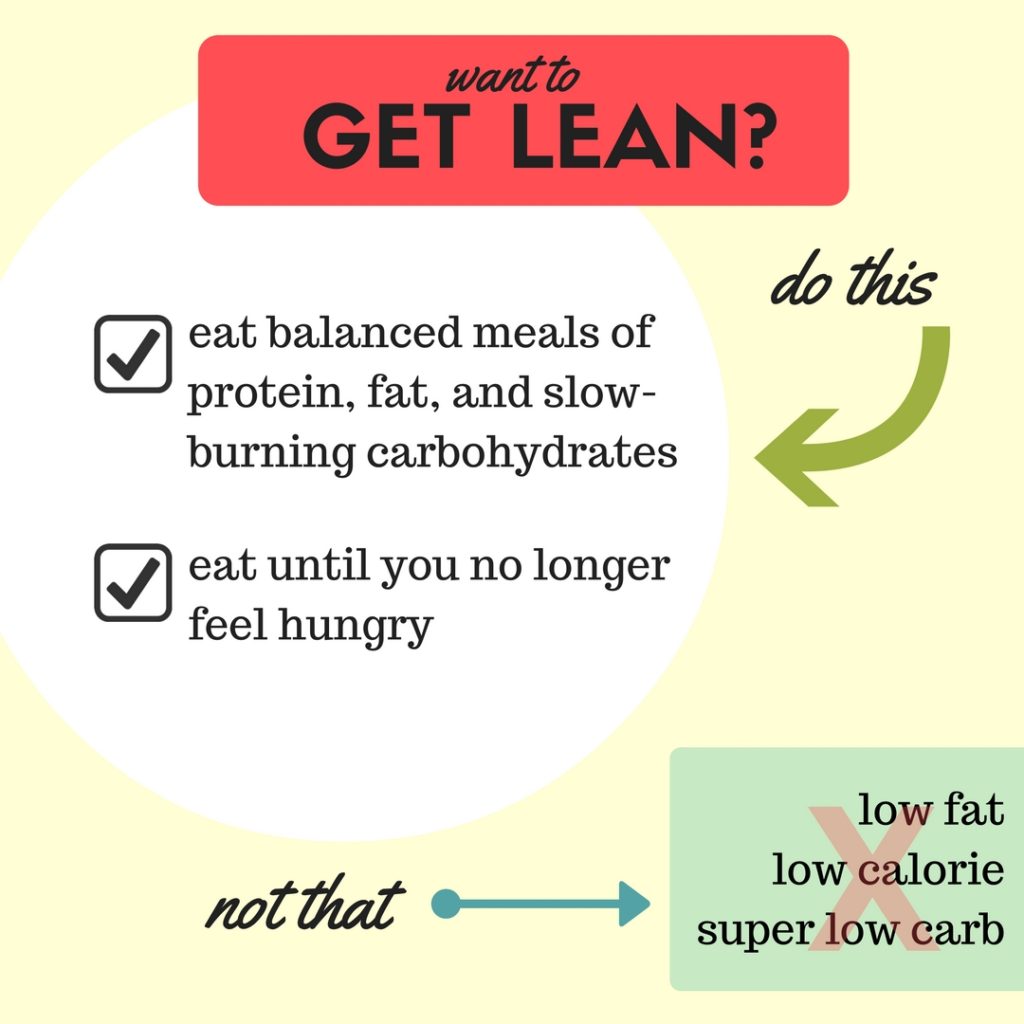If you’re working on getting leaner & improving your health, please know that the process does not have to include deprivation and hunger. In fact, any “diet” or meal plan that has you eating too little, or restricts you to a very narrow range of foods will, you guessed it, leave you feeling hungry and deprived. Though such a diet might give you an initial burst of weight loss and energy boost, ultimately, the deprivation will catch up with you, slowing your metabolism and stoking your cravings.

For most of us, when it comes to fat loss and improved health, the magic occurs when we nourish ourselves each mealtime with real, minimally refined foods, in a balance of protein, fats, and slow-digesting carbs. Amount matters, too – if you eat until you are no longer hungry (but not stuffed), you’ll probably notice that you feel more filled and fueled between one meal and the next (and you won’t need those 13 snacks in between!).
While elimination diets can be a very useful tool in determining food sensitivities and allergies, they typically are not intended to be a way of eating for life. While we all vary slightly from one person to the next in food preferences and intolerances, “you do you” is a very helpful mindset in figuring out what works best for you. For example, maybe your friend can’t tolerate dairy, but you do fine with a bit of cheese or Greek yogurt here and there. Or, maybe you have a friend who swears by going ultra low carb, but, for you, low carb results in low energy, stalled fat loss, disrupted hormones and raging cravings.
Bottom line? When it comes to determining *your* magic formula, eating meals of real, minimally refined foods (in a combination of protein, fat, and slow carbs), and eating to satiety are a great starting point. Fine tune from there to figure out what keeps your hunger, cravings, and energy levels in check.